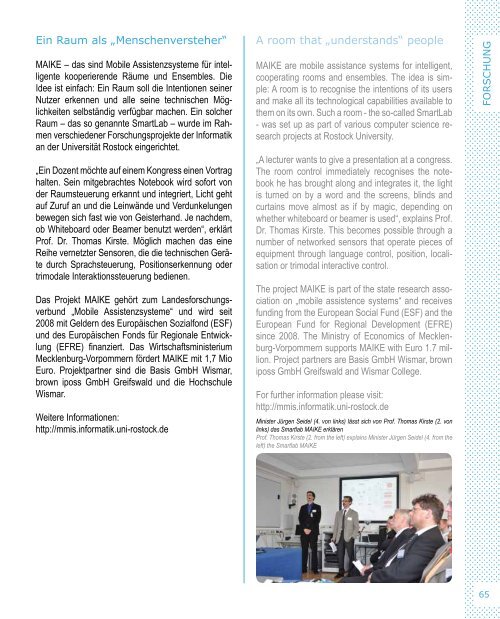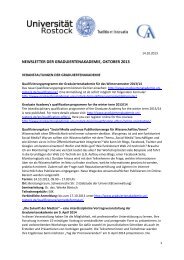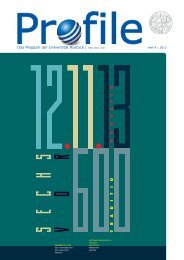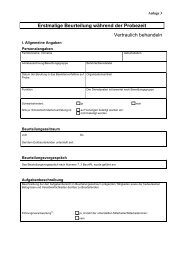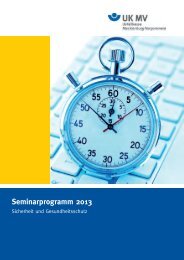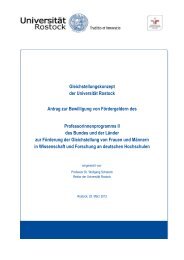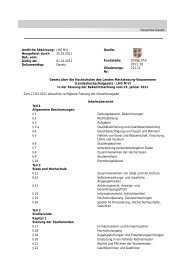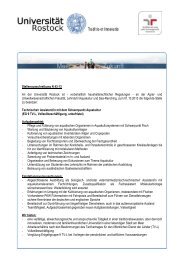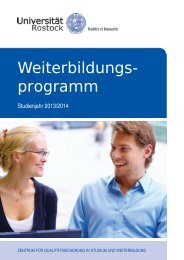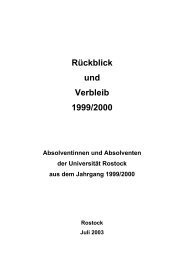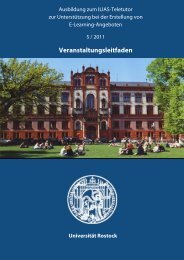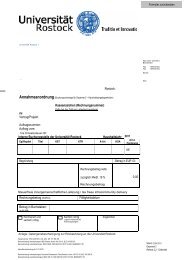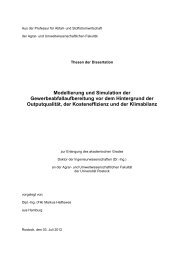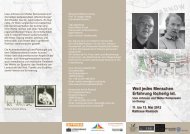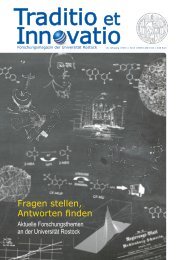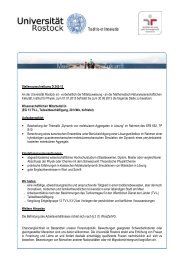Akademisches Jahrbuch Academic Yearbook 2010/2011
Akademisches Jahrbuch Academic Yearbook 2010/2011
Akademisches Jahrbuch Academic Yearbook 2010/2011
Erfolgreiche ePaper selbst erstellen
Machen Sie aus Ihren PDF Publikationen ein blätterbares Flipbook mit unserer einzigartigen Google optimierten e-Paper Software.
Ein Raum als „Menschenversteher“<br />
MAIKE – das sind Mobile Assistenzsysteme für intelligente<br />
kooperierende Räume und Ensembles. Die<br />
Idee ist einfach: Ein Raum soll die Intentionen seiner<br />
Nutzer erkennen und alle seine technischen Möglichkeiten<br />
selbständig verfügbar machen. Ein solcher<br />
Raum – das so genannte SmartLab – wurde im Rahmen<br />
verschiedener Forschungsprojekte der Informatik<br />
an der Universität Rostock eingerichtet.<br />
„Ein Dozent möchte auf einem Kongress einen Vortrag<br />
halten. Sein mitgebrachtes Notebook wird sofort von<br />
der Raumsteuerung erkannt und integriert, Licht geht<br />
auf Zuruf an und die Leinwände und Verdunkelungen<br />
bewegen sich fast wie von Geisterhand. Je nachdem,<br />
ob Whiteboard oder Beamer benutzt werden“, erklärt<br />
Prof. Dr. Thomas Kirste. Möglich machen das eine<br />
Reihe vernetzter Sensoren, die die technischen Geräte<br />
durch Sprachsteuerung, Positionserkennung oder<br />
trimodale Interaktionssteuerung bedienen.<br />
Das Projekt MAIKE gehört zum Landesforschungsverbund<br />
„Mobile Assistenzsysteme“ und wird seit<br />
2008 mit Geldern des Europäischen Sozialfond (ESF)<br />
und des Europäischen Fonds für Regionale Entwicklung<br />
(EFRE) finanziert. Das Wirtschaftsministerium<br />
Mecklenburg-Vorpommern fördert MAIKE mit 1,7 Mio<br />
Euro. Projektpartner sind die Basis GmbH Wismar,<br />
brown iposs GmbH Greifswald und die Hochschule<br />
Wismar.<br />
Weitere Informationen:<br />
http://mmis.informatik.uni-rostock.de<br />
A room that „understands“ people<br />
MAIKE are mobile assistance systems for intelligent,<br />
cooperating rooms and ensembles. The idea is simple:<br />
A room is to recognise the intentions of its users<br />
and make all its technological capabilities available to<br />
them on its own. Such a room - the so-called SmartLab<br />
- was set up as part of various computer science research<br />
projects at Rostock University.<br />
„A lecturer wants to give a presentation at a congress.<br />
The room control immediately recognises the notebook<br />
he has brought along and integrates it, the light<br />
is turned on by a word and the screens, blinds and<br />
curtains move almost as if by magic, depending on<br />
whether whiteboard or beamer is used“, explains Prof.<br />
Dr. Thomas Kirste. This becomes possible through a<br />
number of networked sensors that operate pieces of<br />
equipment through language control, position, localisation<br />
or trimodal interactive control.<br />
The project MAIKE is part of the state research association<br />
on „mobile assistence systems“ and receives<br />
funding from the European Social Fund (ESF) and the<br />
European Fund for Regional Development (EFRE)<br />
since 2008. The Ministry of Economics of Mecklenburg-Vorpommern<br />
supports MAIKE with Euro 1.7 million.<br />
Project partners are Basis GmbH Wismar, brown<br />
iposs GmbH Greifswald and Wismar College.<br />
For further information please visit:<br />
http://mmis.informatik.uni-rostock.de<br />
Minister Jürgen Seidel (4. von links) lässt sich von Prof. Thomas Kirste (2. von<br />
links) das Smartlab MAIKE erklären<br />
Prof. Thomas Kirste (2. from the left) explains Minister Jürgen Seidel (4. from the<br />
left) the Smartlab MAIKE<br />
FORSCHUNG<br />
65


